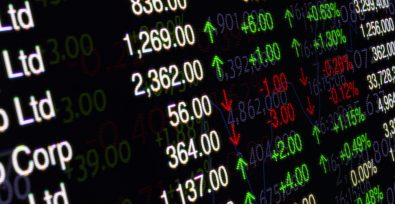Forced labor remains a hidden yet widespread issue in global supply chains, affecting approximately 28 million people worldwide. While long understood as a gross violation of human rights, investors now recognize that it also poses serious financial, legal, and reputational risks to business.
With a growing body of legislation—including the EU’s newly passed Forced Labour Regulation, the U.S. Uyghur Forced Labor Prevention Act, and Canada’s Bill S-211—companies are increasingly under scrutiny for their role in perpetuating modern slavery. Products made with forced labor can now be banned from markets. Additionally, companies that fail to identify and mitigate these risks face criminal penalties and consumer backlash.
Ethics and economics: two sides of the same coin
Despite assumptions that forced labor might lower production costs, research suggests the opposite. According to Juliette Li of Morningstar Sustainalytics,
Ending forced labor could actually fuel economic growth, through demand effects and other impact channels.
This, combined with the fact that firms that engage in forced labor practices also face significant obstacles due to increasing regulatory pressure and societal scrutiny, makes it a pressing issue for investors.
The data is stark. In 2023, goods valued at $468 billion imported into G20 countries were at risk of being produced using modern slavery. And now, with companies found to be using forced labor risk production shutdowns, import bans, fines, and long-term reputational damage. More than 180 countries have ratified the ILO Forced Labour Convention, committing to ban such practices in law. Not only are enforcement laws growing, but investors are increasingly pushing for transparency.
The cost of failing to see the root causes of forced labor
Despite the evidence that rooting out forced labor is good business, many companies still fail to effectively root it out. Unfortunately, many corporations remain unaware of the risks hidden deep in their supply chains. This is often due to the companies not knowing what to look for.
According to Sustainalytics, only 10% of companies had a human rights policy or general statement in place. Among those, 40% had policies considered weak. Likewise, while about half of companies had supplier standards addressing social issues, 35% of these were rated “very weak” in scope and effectiveness.
“Companies rarely recognize their own purchasing practices as a risk factor, which can lead suppliers to cut corners, at the expense of workers’ rights,” warns Li.
For example, when companies push excessive pressure on suppliers to reduce costs and increase speed, corporations often fail to recognize this as contributing to exploitation. Therefore, it is crucial that investors demand evidence that companies are evaluating the root causes of forced labor in their supply chains. This includes understanding institutional failures, such as the poor enforcement of labor laws, as well as economic factors like migration and poverty.
No excuse but to put people before profit
With increasing regulatory scrutiny and public pressure, companies can no longer afford to overlook forced labor in their global supply chains.
So in case corporations needed another reason to act, here’s one: ethical supply chains are profitable supply chains. Ending forced labor is not only the right thing to do—it’s good for business.
Help push companies to do what’s right by signing our petition to demand corporate accountability to always put people before profit.







Freedom United is interested in hearing from our community and welcomes relevant, informed comments, advice, and insights that advance the conversation around our campaigns and advocacy. We value inclusivity and respect within our community. To be approved, your comments should be civil.
Companies would make more money and have more goodwill if they treated their workers fairly.
Nice idea but who will police it? Globally, political will to address slavery is seriously lacking so businesses will continue to cover up their illicit deals in the ever growing supply chain web.